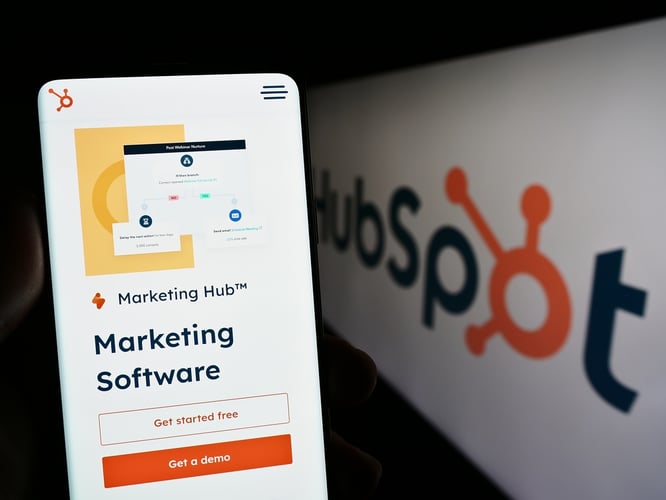User experience is one of the fundamental elements in any digital marketing strategy, and for a business, having a fast website loading speed is crucial, as it can make a significant difference in the bounce rate.
Just think about your own experience when visiting a website – if it takes too long to display information, you're likely to leave and look for an alternative. This translates to a loss for a company.
In this article, we will explore the importance of having an efficient loading speed, how to measure it to avoid issues, and the most common mistakes that can slow down a website.
What is website loading speed?
Website loading speed refers to the time it takes for a website to fully display in a browser after a user clicks on a link or enters the URL.
The clock starts ticking from the moment the request is made until each element of the page, including text, images, CSS, scripts, and other multimedia resources, is fully shown.
Loading speed can vary depending on factors such as design, hosting, location, internet connection, among others. This performance indicator impacts not only user experience but also the website's visibility on search engines.
Slow loading times can be the difference between retaining a potential customer or losing them, which gradually shapes the profile of our brand. Hence, it's a crucial element to consider when designing a website.
How does website loading speed influence?
Website loading speed is not a minor technical detail, and the impact it generates can be positive or negative, depending on the user experience when navigating our business page.
Among the factors affected by speed, the following can be found:
Google takes into account website loading speed
One of the aspects Google considers when ranking a website to provide rankings in its search engine results pages (SERP) is loading speed.
The technology giant has confirmed that loading speed is a factor in increasing or decreasing visibility on search engine result pages. This implies that a company might lose organic traffic if periodic performance issues are not addressed.
User retention
Furthermore, speed plays a crucial role in user retention, as even a one-second delay can reduce user satisfaction rates.
Increase in sales
Lastly, and perhaps most importantly, loading speed can directly influence your sales.
While an efficient loading speed can significantly boost a company's revenue, a slow one can decrease earnings, severely impacting a business.
The key is to improve conversion rates and build a solid relationship with customers.
How is website loading speed measured?
Now that you understand the importance of website loading speed, it's essential to monitor it frequently. With internal changes and constant updates, issues can arise.
For this reason, track loading speed bi-weekly or monthly. It's quick and easy to identify the element causing deficiency.
One of the most used tools is Google PageSpeed Insights, which evaluates a website's performance in terms of speed. It's free and user-friendly.
Moreover, it provides a performance score and specific suggestions on how to enhance your site's loading speed.
Another popular tool is GTmetrix, which offers a detailed analysis of loading speed, including total loading time, page size, and the number of requests.
Common errors in website loading speed
Despite the importance of loading speed, many websites still fall into common traps that can slow down their performance.
Here are some of the most common errors you might encounter when optimizing a website:
1. Hosting
One of the primary factors is the choice of hosting provider. While shared hosting might be cost-effective, it can result in slow loading times due to resource sharing among websites on the same server.
Consider upgrading to a virtual private server or dedicated hosting to improve loading speed.
2. Poor CMS choice
The content management system (CMS) you use can also influence this aspect. Some CMSs are better optimized for speed than others. Research thoroughly when selecting a CMS – HubSpot offers one of the best options in the market.
3. Unoptimized themes
Attractive themes can make your website stand out, but they can also slow it down if not properly optimized.
Opt for themes designed with speed in mind and avoid those including excessive scripts and unnecessary CSS files.
4. Plugins
Plugins can add functionality to your website but might lead to slow loading times.
The rule of thumb is to install only essential plugins and update them regularly to ensure performance.
5. Unoptimized images
Images often contribute the most to page size, affecting loading speed.
One of the first steps is to optimize each image you use, compressing and using modern formats like WebP, as they are crucial to your goal.
6. Cache
Another common error is not using cache, which saves users from loading all elements of your website every time they visit.
This factor stores a static version of the website, which can be quickly delivered to recurring visitors, retaining user attention.
7. Lack of Gzip compression
Gzip compression can reduce the size of your website's files, improving speed. Ensure that your server is configured to use Gzip compression to optimize performance.
Optimizing loading speed with Ocean Theme
One of the best approaches is to use themes designed to fulfill complete optimization and performance roles online, and Ocean Theme is a reference in this field.
This HubSpot theme, developed by Media Source, offers a range of features and benefits that make it ideal for optimizing website loading speed and customizing it according to your brand's needs.
It offers excellent performance and is designed to be used without requiring programming knowledge. The goal is to allow you to create something that fits your desires and naturally increase conversions for your business.
Another benefit of Ocean Theme is that it can save thousands of dollars in web development and design, as it provides all the necessary tools for the task.
Conclusion
A business's success relies on customers, which is why working on improving every element that can help acquire more users is crucial. Loading speed is one of these aspects.
With Media Source and their Ocean Theme proposal, this issue is resolved. If you want to learn more about the advantages of this HubSpot theme, reach out to one of our experts to address all your doubts.
Let us be part of this new project and help you achieve success in optimizing your website.

.png?width=319&height=267&name=gtmetrix_2023%20(1).png)




